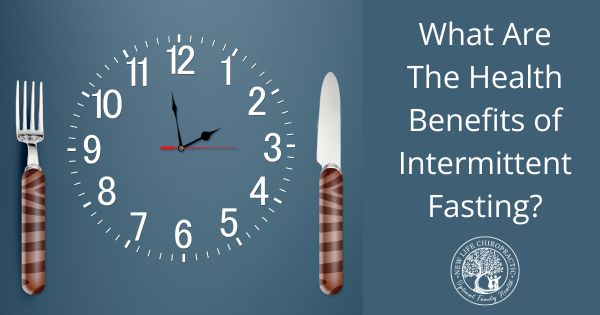
Fasting, it turns out, has several health benefits that most people seek including:
- Improved cardiovascular health
- Reduced cancer risk
- Gene repair
- Longevity.
Part of what appears to be driving the disease process is that we may be eating too frequently. When you’re in constant “feast mode,” your body forgoes much of its natural “repair and rejuvenation programming.”
Severe calorie restriction promotes both weight loss and longevity in animal models, but this kind of “starvation diet” is not a very appealing strategy for most people. However, newer research shows that you can get most if not all of the same benefits of severe calorie restriction through intermittent fasting. In other words, an eating schedule where you feast on some days, and dramatically cut calories on others.
This way of eating effectively mimics the eating habits of our ancestors, who did not have access to grocery stores or food around the clock. They would cycle through periods of feast and famine, and modern research shows this cycling produces several biochemical benefits. In short, by altering what and when you eat, you can rather dramatically change how your body operates.
The Health Benefits of Intermittent Fasting
Fasting is historically commonplace as it has been a part of spiritual practice for millennia. But modern science has confirmed there are many good reasons for fasting, including the following:
- Normalizing your insulin and leptin sensitivity, and boosting mitochondrial energy efficiency: One of the primary mechanisms that makes intermittent fasting so beneficial for health is related to its impact on your insulin sensitivity.
- While sugar is a source of energy for your body, it also promotes insulin resistance when consumed in the amounts found in our modern processed junk food diets. Insulin resistance, in turn, is a primary driver of chronic disease—from heart disease to cancer. Intermittent fasting helps reset your body to use fat as its primary fuel, and mounting evidence confirms that when your body becomes adapted to burning FAT instead of sugar as its primary fuel, you dramatically reduce your risk of chronic disease.
- Normalizing ghrelin levels, also known as “the hunger hormone.”
- Promoting human growth hormone (HGH) production: Research has shown fasting can raise HGH by as much as 1,300 percent in women, and 2,000 percent in men, which plays an important part in health, fitness, and slowing the aging process. HGH is also a fat-burning hormone, which helps explain why fasting is so effective for weight loss.
- Lowering triglyceride levels and improving other biomarkers of disease.
- Reducing oxidative stress: Fasting decreases the accumulation of oxidative radicals in the cell and prevents oxidative damage to cellular proteins, lipids, and nucleic acids associated with aging and disease.
Shed Weight With Intermittent Fasting
Intermittent fasting is the most efficient way to shed unwanted fat and eliminate your sugar cravings. This is a vital benefit since most of us carry excess fat we can’t seem to burn. When sugar is not needed as a primary fuel, your body will also not crave it as much when your sugar stores run low.
As mentioned above, the other mechanism that makes fasting so effective for weight loss is the fact that it provokes the secretion of HGH. This fat-burning hormone has many well-recognized “anti-aging” health and fitness benefits.
Protect Your Brain With Intermittent Fasting
Last but not least, intermittent fasting has also been identified as a potent ally for preventing and perhaps even treating dementia. First, ketones are released as a byproduct of burning fat, and ketones (not glucose) are the preferred fuel for your brain.
In addition, intermittent fasting boosts the production of a protein called brain-derived neurotrophic factor (BDNF), which activates brain stem cells to convert into new neurons and triggers numerous other chemicals that promote neural health. It also protects your brain cells from changes associated with Alzheimer’s and Parkinson’s disease.
Research by Dr. Mark Mattson, a senior investigator for the National Institute on Aging, suggests that alternate-day fasting (restricting your meal on fasting days to about 600 calories), can boost BDNF by anywhere from 50 to 400 percent, depending on the brain region.
Join us for the Nutrition & Fasting Health Workshop
Tuesday, April 15, 2025 from 6-7 pm
Class will be online on our YouTube Channel.
